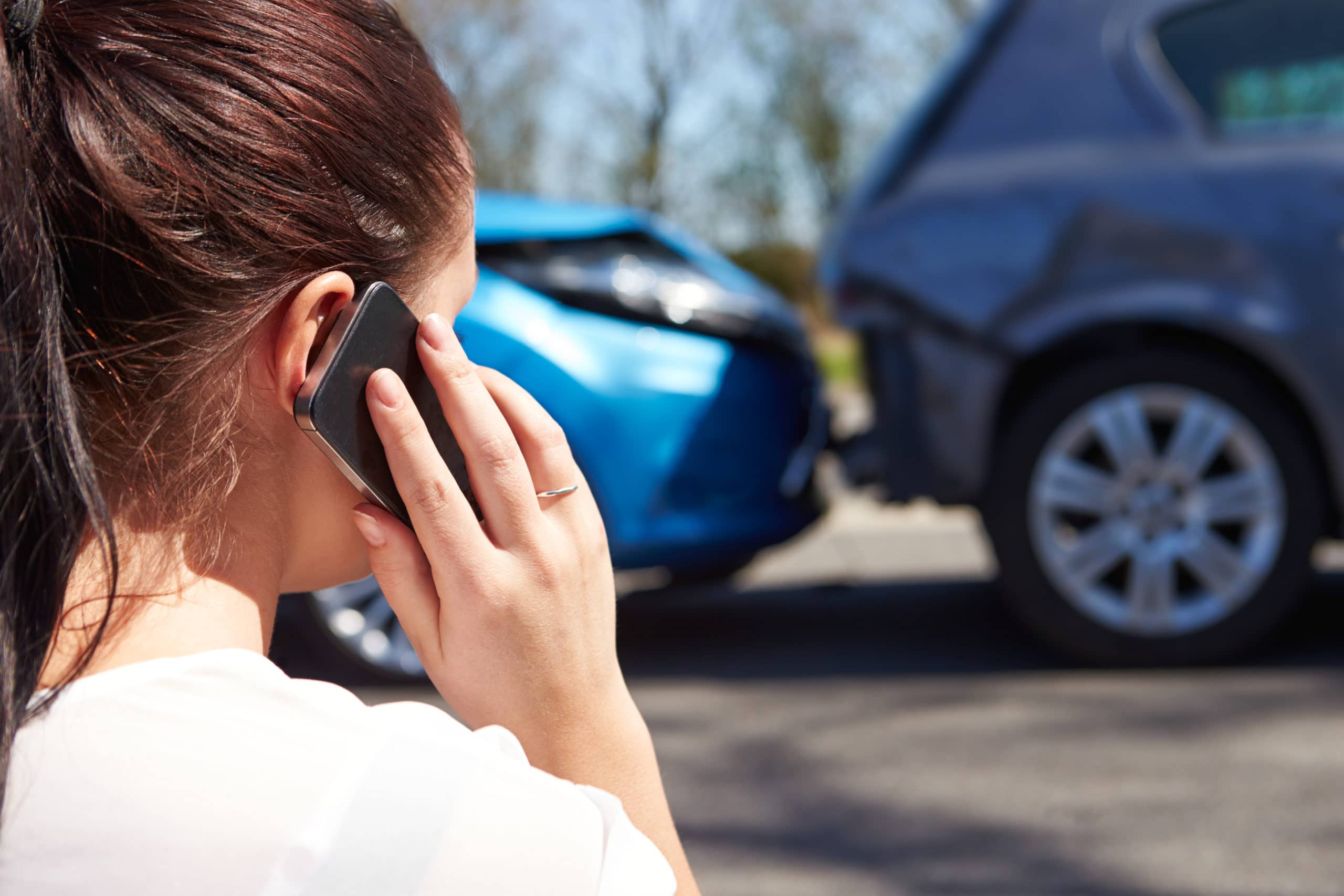Ryan Zavodnick | March 4, 2021 | Car Accidents

It can be frustrating when you can see the other driver’s eyes in your rearview mirror. But you should never be tempted to punish a tailgating driver. That can make the situation worse!
Following too closely behind a car, commonly called tailgating, increases the risk of a rear-end collision. According to the National Highway Transportation Safety Administration (NHTSA), rear-end collisions are the most common kind of car accident.
Why Do Drivers Tailgate?
For a variety of reasons. A driver who feels they were cut off unfairly may try to “get back” at another driver. A driver who is running late, for example, may try to follow closely behind since they are in a hurry.
In studies of aggressive driving behavior leading to rear-end collisions, data has shown that driver attributes are more likely to influence behavior than the situation. Here’s a look at the attributes of drivers who are more likely to tailgate:
- Drivers with aggressive driving tendencies. Since tailgating is, effectively, an aggressive driving maneuver, it makes sense that aggressive drivers are more likely to engage in reckless driving behaviors like tailgating.
- Drivers with a sense of self-importance. These drivers have forgotten “The Golden Rule,” and they only focus on their own needs on the road. For these kinds of drivers, if they are late for work or on their way home after a long day, other drivers’ rights are secondary to their own desire to rule the road. They diminish the importance of issues such as tractor-trailer blind spots and make dangerous maneuvers to get where they are going.
- Drivers with a false sense of security. Some drivers think they have the skills and abilities required to avoid collisions. Unfortunately, even expert drivers cannot always anticipate common road defects that lead to accidents. These drivers may be more likely to be speeding as well.
Of course, not all drivers with a sense of self-importance and confidence in their driving skills will engage in reckless driving behaviors like tailgating. These are simply characteristics that researchers have observed in tailgating drivers.
What Are the Dangers of Tailgating?
One of the biggest dangers of tailgating is that the tailgating driver fails to leave enough room to stop in the event that the leading car comes to a stop or slows down quickly. When following close behind at high speeds, it can leave little time for a driver to see the car in front slowing down and have enough time to react before a rear-end collision happens.
Neck and back injuries are common in rear-end collisions, whether they happen at high or low speed. Other injuries include chest injuries (usually from an airbag) and whiplash.
Another tailgating danger: retaliation. Tailgating can pressure the driver of the leading car to make a rapid braking maneuver to try to shake the tailgater off of the bumper.
This maneuver sometimes called a “brake check,” can cause a serious collision if the leading driver holds the brake for even a second too long. It can also lead to a crash if the tailgating driver is engaged in other distracted driving behaviors, like texting while driving.
How Can I Avoid Tailgaters or De-Escalate Tailgating on the Road?
You will not always be able to take action to avoid tailgating or de-escalate tailgating behavior. If you cannot, the best course of action is to remember to not react to the other driver’s bad behavior. Even if you are provoked, you should always keep your cool behind the wheel.
Some steps you can take to avoid tailgating problems include:
- Driving the speed limit. Unless there are adverse weather conditions or you are in congested traffic, you should always drive the speed limit. Driving below the speed limit can trigger tailgaters to behave irrationally.
- Stay in the right lane. Many states have explicit laws requiring drivers to stay in the right lane unless they are passing. Even in states that do not, this so-called “lane courtesy” is supported by highway safety advocates.
- Don’t tap the brakes. No matter how tempting it might be, don’t tap the brakes when a car is following too close behind you. If the driver does have a tendency to tailgate, you may make the situation worse.
It’s never your fault if another driver is behaving aggressively or dangerously on the road. However, with these defensive driving techniques, you can protect yourself and your passengers from unnecessary risk.
Contact Our Car Accident Law Firm in Philadelphia Today To Get Help With Your Case
To learn more and get the help you deserve, call Zavodnick & Lasky Personal Injury Lawyers at (215) 875-7030 or contact us online.
You can also visit our law firm at 123 S Broad St #1220, Philadelphia, PA 19109.
